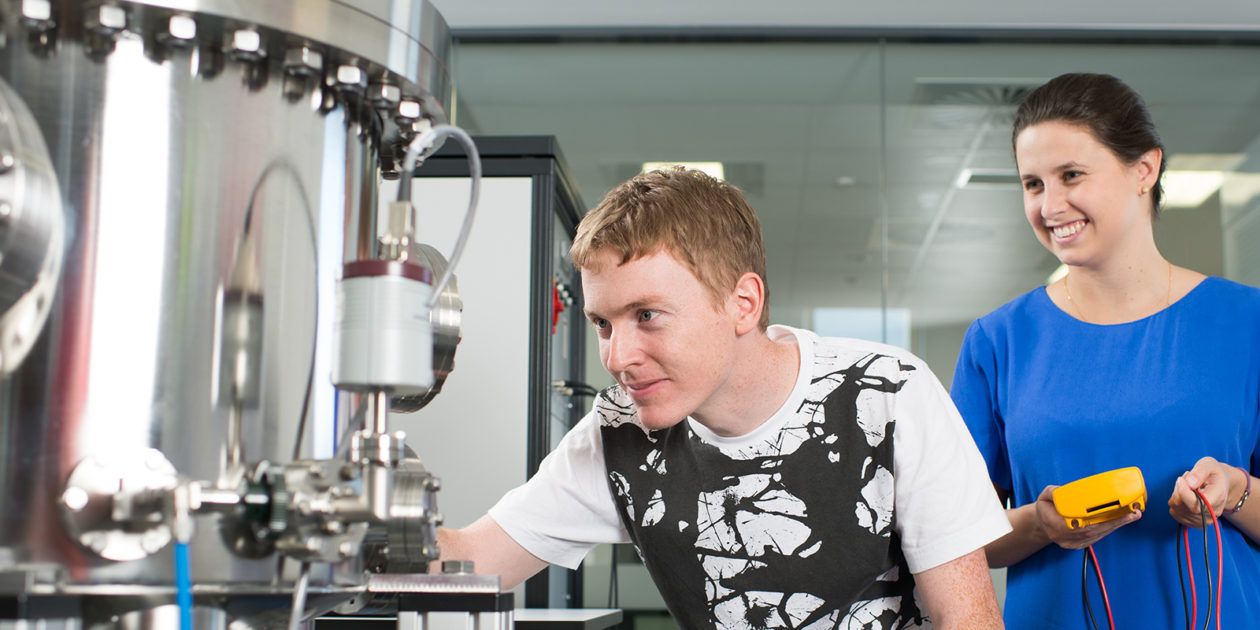Overview
Overview
Curtin is currently in the process of seeking Engineers Australia accreditation for the three year Master of Professional Engineering course, for all graduates.
The Master of Professional Engineering equips you with the broad skills required as an engineer while providing discipline-specific knowledge that allows you to work as a professional engineer upon graduation.
You can choose to study one of three Electrical Engineering majors (Embedded Systems; Telecommunications and Networking; Emerging Power Systems) or Chemical Engineering. In your final year, you have the opportunity to complete a one-year project that will investigate and apply emergent technologies in your chosen field.
During the course, you must gain at least 12 weeks of exposure to professional practice and keep a formal log book to record your experience. You will also be required to complete Senior First Aid training.
Embedded Systems (MJRP-EMSYS)
Our world is characterised by the ever-increasing number of intelligent devices which have inbuilt or 'embedded' computers. Embedded systems are computers with specialised input/output devices that may or may not be programmed by the end user. In this major, you will study intermediate and advanced topics in embedded systems, for example, embedded systems in field-programmable gate arrays (FPGAs) and embedded software engineering.
Telecommunications and Networking (MJRP-TLNET)
The electronics and communication fields represent two of the fastest growing technology areas in the world. With the rapid progress of information technology, the role of communications is becoming even more crucial for increasing industry efficiency and competition. This major explores relevant topics in telecommunications and networking like mobile radio communications and data network security.
Emerging Power Systems (MJRP-EMPWR)
Electricity is a key energy source in the development and progress of contemporary society. Since fossil fuels are a finite resource, the development of alternative sources of electrical energy such as solar and wind is vital. This major addresses challenges in the generation, transmission and distribution of electricity. Emergent technologies like smart grid and distributed generation are covered in detail.
Chemical Engineering (MJRP-CHEMM)
The essence of chemical engineering involves changing raw materials into useful products. It has wide applications in industry, spanning experimental laboratory work to full-scale production in areas such as fuel, clothes, food and pharmaceuticals. This major provides strong theoretical, laboratory, design and research experiences, alongside learning technological advances in automation and control, and large data management in chemical process industries.
Please refer to the handbook for additional course overview information.
What jobs can the Master of Professional Engineering course lead to?
Electrical Engineering
- Aerospace
- Banking and finance
- Computer and mobile technologies
- Construction
- Consumer power systems
- Electric vehicles
- GPS technologies
- Instrumentation and control
- Renewable energies
- Robotics
- Telecommunication
- Utility power networks
Chemical Engineering
- Ceramics
- Gas processing
- Fertilisers
- Food and beverage production
- Mineral processing
- Oil refining and petrochemicals
- Pharmaceuticals
- Plastics
What you'll learn
- apply knowledge and skills to design and lead innovative solutions to engineering problems
- analyse and synthesise contemporary industry needs to inform improvements and formulate solutions
- improve professional practice and promote life-long learning through research and critical analysis of contemporary information
- analyse, generate and communicate effective and innovative solutions to complex problems
- use technology to facilitate complex problem solving and operational efficiencies in an engineering context
- maintain and initiate ongoing professional expertise and life-long learning for personal and career development
- apply engineering skills and knowledge in a global context to address issues of international relevance
- recognise international issues and demonstrate cultural competence inclusive of diversity relevant to engineering
- demonstrate leadership skills, expert judgements, ethical behaviour and self-management as a professional engineer
